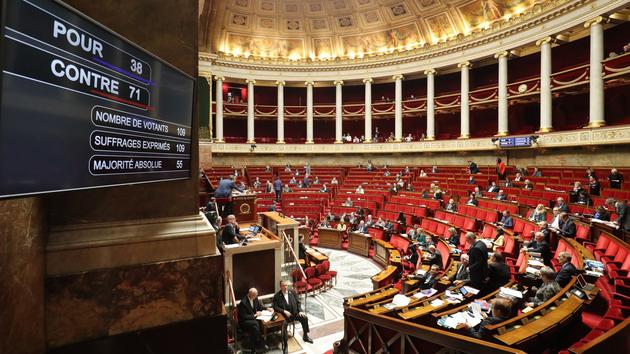A keen observer of French political life and a regular contributor to the FigaroVox, Maxime Tandonnet notably published André Tardieu. The misunderstood (Perrin, 2019).
The use of article 49-3 to shorten the debate on pensions in the National Assembly would be considered by the government. Far from being a mere twist on political life, this appeal has taken on a major symbolic and political dimension. What does he specifically plan? The constitution provides: “The Prime Minister may […] engage the responsibility of the Government before the National Assembly on the vote of a bill of finance or social security financing. In this case, this project is considered adopted, unless a motion of censure, tabled within twenty-four hours which follows, is voted […] The Prime Minister can, moreover, have recourse to this procedure for another project or one law proposal per session. "
This article has been used 86 times since the entry into force of the Fifth Republic. In particular, it has served in two situations. The first is the assumption that the government does not have an absolute majority and has no other choice to pass its laws. The governments of François Mitterrand, from 1988 to 1993, notably Rocard, who were in this hypothesis, made abundant use of it, 28 times. The second is the determination to quickly pass a text when, despite the existence of an absolute majority, the government wishes to avoid the stagnation of the debate, like Mr. de Villepin who made use of it in 2006 to make vote the law on the first employment contract (CPE), finally withdrawn under pressure from the street, or from Mr. Valls between 2014 and 2017, who used it 6 times to implement "its supply policy" ( "growth and activity" and "work law").
Introducing article 49-3 into the Constitution was imperative to end the party regime which prohibited France from being governed over time.This provision was introduced in the Constitution of 1958 under the rationalized parliamentarism intended to strengthen the Executive vis-a-vis the Parliament, in reaction against the modes of IIIe and IVe Republic dominated by an all-powerful assembly which made and defeated the governments, resulting in chronic instability, especially during periods of political crisis. It was imperative for the constituents to end the party regime which prohibited France from being governed over time.
The logic of this provision - which can be explained by the time when it was adopted - is highly questionable in terms of parliamentary democracy: by simple decision of the Prime Minister, a law is considered adopted without even having been voted . The hypothesis of the vote of a motion of censure is purely theoretical: on the 50 motions which were deposited within the framework of the use of article 49-3 none was adopted. Indeed, it is almost impossible to gather an absolute majority of the National Assembly to overthrow a government. In fact, the use of article 49-3 amounts to abolishing, the time of the passing of a law, the competence of the National Assembly. President Sarkozy, from 2007 to 2012, never used it. The 2008 constitutional revision restricted its possible use to only once per parliamentary session (excluding the law on finance and social security balance).
The National Assembly now presents itself as an annex to the Élysée Palace and in fact is largely subject to it.Since 1958, the world has changed profoundly. With the quinquennium, adopted in 2000, the National Assembly, systematically elected in the immediate aftermath of the presidential election, lost most of its prestige, its authority, its sovereignty. It is presented as an annex to the Élysée Palace and in fact is largely subject to it. Sometimes, the reactions of a handful of rebellious or the guerrillas of amendments tabled by the opposition upset the executive power by delaying the legislative process. These are just the sterile jolts of a declining parliamentary democracy.
Today, this article 49-3, especially since its use by Manuel Valls for the laws of liberalization of the economy, coming up against the sling of a part of its majority, has taken a deleterious image, symbol of authoritarianism and weakness. The former Prime Minister who became a candidate for the presidency of the Republic, wanted to delete this article of the Constitution which he had nevertheless made abundant use of.
Using 49-3, on the subject of pensions, risks further amplifying the climate of mistrust, if not revolt, that characterizes present-day France.Of course, governments do not want the parliamentary debate to get bogged down in a fight for amendments. But France for several years has been bogged down in chaos through the outbreak of violence in the Yellow Vests, then one of the longest social movements in history. The societal debates which cannot take place within the democratic framework of a National Assembly recognized as the representation of the people, occur in another form: that of riots and violence in the street.
More than ever, the democratic divide is raging between on the one hand the ruling elites, perceived as arrogant and disconnected, and the people in their immense majority, who have the feeling of being despised and abandoned. The continued weakening of the National Assembly and of the deputies, as representatives of the Nation, a natural link between the Nation and state power, can only aggravate this phenomenon. An additional resort to 49-3, on a subject as sensitive and dramatic as that of pensions, risks further amplifying the climate of mistrust if not of revolt that characterizes current France.

